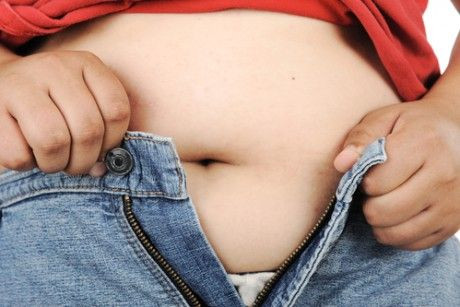Stress Hormone Cortisol Naturally Produced More in Children Struggling With Obesity

While obesity’s effect on other physical health complications, such as heart disease and diabetes, is well documented in children, its impact on a child’s psychological development is relatively a mystery. A recent study published in the Endocrine Society’s publication the Journal of Clinical Endocrinology & Metabolism found that children struggling with obesity also produce higher levels of the stress hormone cortisol.
"We were surprised to find obese children, as young as age 8, already had elevated cortisol levels," said one of the study's authors, Erica van den Akker, M.D., Ph.D., of Erasmus MC-Sophia Children's Hospital in Rotterdam, the Netherlands. "By analyzing children's scalp hair, we were able to confirm high cortisol levels persisted over time."
Dr. van den Akker and her colleagues from Erasmus MC collected hair samples from 20 obese children and 20 children whose weight was considered normal. Each group was made up of 15 girls and five boys who were between the ages of 8 and 12. Researchers analyzed cortisol exposure over the past month through the amount of hormone concentrations found on human hair.
Hair from the scalp of children struggling with obesity contained an average of 25 pg/mg cortisol concentration, while children with a normal weight had an average hormone concentration of 17 pg/mg. The research team admitted that the study did not definitely attribute obesity to psychological stress in the event that obese children were naturally able to control an upsurge in hormone levels.
"Because this study took an observational approach, more research will determine the cause of this phenomenon," van den Akker said. "We do not know whether obese children actually experience more psychological stress or if their bodies handle stress hormones differently. Answering these key questions will improve our understanding of childhood obesity and may change the way we treat it."
According to the World Health Organization (WHO), over 40 million children under the age of 5 were considered obese back in 2011. Although the Dutch research team continues to scratch the surface on obesity’s effect on stress levels through further research, the effect stress has on weight gain is widely accepted among members of the medical and health community.
Depression and anxiety are considered two of the leading risk factors for developing an eating disorder. One type of eating disorder, known as stress eating or emotional eating, causes an individual to binge on unhealthy, calorie-packed food in order to satisfy their emotional needs. To stop yourself from binge eating during periods of high stress levels: distract yourself when tempted to indulge even if you’re not hungry, identify your comfort foods and get rid of them, practice relaxation techniques, including yoga and meditation, take in seven to eight hours of sleep a night, refrain from skipping meals such as breakfast, and keep your body active with exercise.
Veldhorst M, Noppe G, Kok C, Mekic S, Koper J, van den Akker E. "Increased Scalp Hair Cortisol Concentrations in Obese Children." Journal of Clinical Endocrinology & Metabolism. 2013.
Published by Medicaldaily.com



























